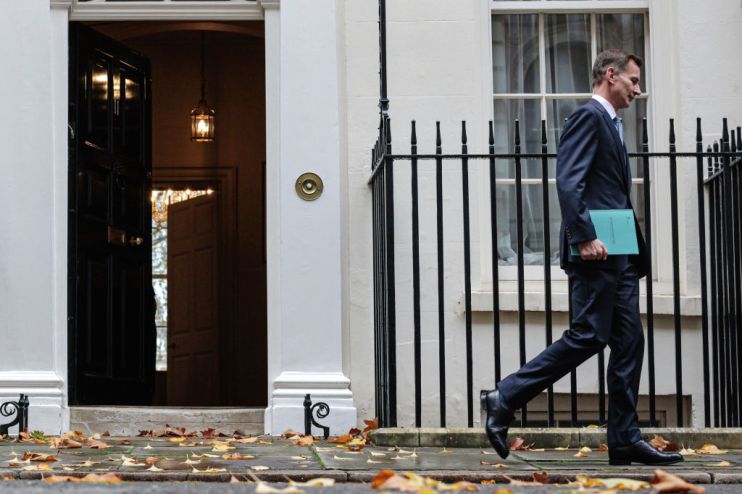Flip flopping over tax hikes and spending cuts a ‘bruising episode’ for UK

Flip flopping on UK economic policy has been “a bruising episode” for the country over the past few months, a top City economist said today.
The huge swing in tax and spending decisions between former chancellor Kwasi Kwarteng and the current number 11 incumbent Jeremy Hunt has damaged the country’s financial credibility, according to Neil Shearing, chief economist at consultancy Capital Economics.
Last week Hunt launched £55bn of spending cuts and tax hikes to convince investors he is serious about shoring up the UK’s public finances.
Weaker growth and a swelling debt interest bill has raised government spending sharply.
The so-called “fiscal hole”, the difference between government tax revenues and spending, was created by old chancellor and now prime minister Rishi Sunak setting rules that bound the government to cut debt as a share of the economy and not to borrow to fund day-to-day spending in three years.
Hunt loosened these rules so they have to be met in three years. He capped day-to-day borrowing at three per cent of GDP.
Tax rises and spending cuts were designed to undo the damage to investor sentiment toward UK economic policy caused by former prime minister Liz Truss and Kwarteng approving £45bn of unfunded tax cuts.
“The UK’s current predicament was caused by a perception in markets that the Truss administration had weakened budget discipline and jettisoned the usual constraints on fiscal policy,” Shearing said.
Debt interest will consume public spending in coming years

“Not only did it announce large unfunded tax cuts, it also ignored fiscal rules and eschewed [Office for Budget Responsibility] oversight.”
“The UK’s experience holds two lessons for other countries. First, there is much less room for fiscal error in a world of rising interest rates. And second, perceptions of fiscal discipline matter and can shift quickly,” he added.
After the Truss and Kwateng’s ill fated mini-budget on 23 September, UK borrowing costs hit their highest level in over 20 years on some measures and the pound slid to its lowest level against the US dollar ever.
The Bank of England was forced into a £65bn emergency bond buying programme to stem a historic sell off of UK gilts caused by investors fretting over a huge uptick in government borrowing and a looming recession.
Hunt was parachuted into number 11 after Truss sacked Kwarteng. In just a few days, he reversed nearly everything in the mini-budget, except scrapping the 1.25 percentage point national insurance rise.
“Credibility is hard to gain but easy to lose – and winning it back entails significant political and economic costs,” Shearing said.
The fiscal swing between Truss and Kwarteng’s package and Hunt’s measures is around £100bn.
Shearing slammed Hunt for going too far, risking worsening what the OBR thinks could be a year long recession.
“The measures announced by chancellor Hunt may now have swung UK fiscal policy too far in the other direction,” he said.
A raft of tax bands have been frozen for longer, while businesses have been saddled with a near £6bn national insurance stealth tax grab.
Shearing said few of the UK’s counterparts, such as the US or countries in the eurozone, are raising taxes or cutting spending. Most are also facing a coming recession.
Typically, during downturns, governments would reduce taxes and raise spending to smooth out the hit to businesses and households.
However, high inflation has complicated this equation. Loosening fiscal policy in a high inflation environment risks embedding it into an economy over the long run, resulting in a bigger hit to an economy.